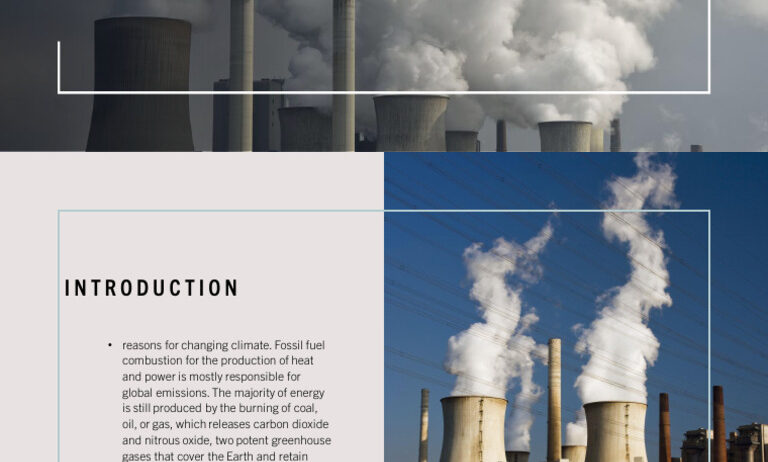Diesel fuel, a hydrocarbon-based energy source, plays a prominent role in the global economy, powering vehicles, machinery, and generating electricity. However, its contribution to global warming warrants diligent examination. As the world grapples with the urgent realities of climate change, understanding the intricacies of diesel fuel and its broader implications on our environment is critical.
To comprehend the climate impact of diesel fuel, one must delve into the chemistry of fossil fuels. Fossil fuels such as coal, oil, and natural gas are formed from decomposed organic matter over millions of years. When burned, these fuels release carbon dioxide (CO2) and other greenhouse gases into the atmosphere. Specifically, diesel has a higher carbon content compared to gasoline, which translates to increased CO2 emissions per unit of energy produced. This elevated carbon output exacerbates the greenhouse effect, trapping heat in the Earth’s atmosphere and leading to global warming.
One might wonder how diesel fuel compares to other fossil fuels in terms of its environmental footprint. Notably, its combustion results in not only CO2 emissions but also pollutants such as nitrogen oxides (NOx) and particulate matter (PM). These pollutants contribute not only to air quality degradation but also to secondary greenhouse gases that amplify climatic shifts. The role of NOx in the formation of ground-level ozone is particularly concerning. Ozone, while beneficial in the stratosphere, is a potent greenhouse gas at lower altitudes, contributing to warming.
In broader contexts, transportation inherently illustrates the pervasive nature of diesel fuel. The transportation sector, which is heavily reliant on diesel-powered vehicles, accounts for a significant share of global greenhouse gas emissions. From freight trucks to buses and ships, diesel fuel’s omnipresence in transportation underlines its contribution to climate change. Moreover, as urban centers swell, so too do the emissions associated with diesel combustion, creating a multifaceted challenge for public health and climate resilience.
Furthermore, it’s essential to consider the lifecycle emissions of diesel fuel. From extraction and refinement to combustion and, ultimately, disposal, the environmental consequences of diesel fuel extend far beyond the initial emissions during its use. The extraction process, which often involves hydraulic fracturing and mining, poses additional environmental risks. These practices can lead to habitat destruction, soil degradation, and water contamination, further exacerbating climate-related challenges.
Turning to the potential for alternatives, the debate surrounding renewable energy sources continues to gain traction. Electrification of transport systems presents a compelling avenue for reducing reliance on diesel fuel. Electric vehicles (EVs) offer a more sustainable option, as they can be powered by renewable energy sources such as solar or wind, significantly cutting down carbon emissions. Moreover, advancements in battery technology enhance the feasibility of EVs in freight transport, showcasing a pathway to mitigate the climate impact associated with diesel.
Nonetheless, transitioning away from diesel fuel poses practical and infrastructural challenges. The current heavy investment in diesel infrastructure complicates the rapid adoption of alternative fuel sources. Policymakers and industry leaders must navigate these complexities to foster a sustainable energy transition while mitigating the negative externalities of diesel use.
In tandem with alternative fuels, the implementation of strict emission regulations is paramount. Establishing and enforcing emission standards can effectively curtail the environmental impact of existing diesel engines. Moving towards stricter compliance can encourage innovation in cleaner technologies, pushing manufacturers to develop low-emission diesel engines. This dual approach—promoting cleaner fuels and regulating existing emissions—holds significant potential for lowering the overall carbon footprint associated with diesel.
Responsibility also lies with consumers, who play a crucial role in shaping the energy market. Increasing awareness and understanding of the climate implications of diesel fuel can drive demand for greener options. Consumer choice can ultimately influence corporate strategies, prompting businesses to seek more sustainable practices, from sourcing materials to production processes.
The intersection of policy, technology, and consumer behavior presents both challenges and opportunities. Collective global action is essential in addressing the ramifications of diesel fuel on climate change. International agreements, such as the Paris Accord, strive to unite countries toward a common goal of reducing greenhouse gas emissions. Aligning national policies with global objectives can create a cohesive approach to mitigate climate impacts.
In conclusion, diesel fuel decidedly contributes to global warming through its emissions and environmental ramifications. Its combustion emits substantial amounts of CO2 and other harmful pollutants, exacerbating the broader climate crisis. However, pathways toward sustainability exist through renewable alternatives, regulatory frameworks, and informed consumer choices. Addressing diesel fuel’s impact on the climate requires a multifaceted approach, calling for concerted action among governments, industries, and individuals alike. As the urgency of the climate crisis intensifies, the transition to cleaner energy sources becomes not just an opportunity, but an imperative for a sustainable future.








